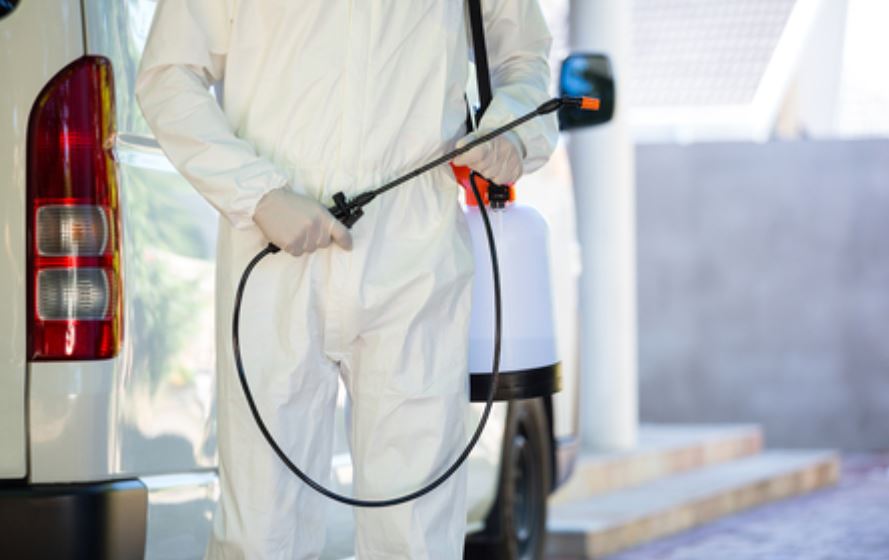What are the Do’s and Don’ts of pest control Ilford?
Pest control Ilford is highly important as this can save you from many diseases and allergies. How can you address your pest problems in a safe manner? The trick is to have an open mind when it comes to inquiries. The first and foremost step is to learn about the pests you have and the options for controlling specific pests.
With the help of this article, learn more about the measures that can be taken to control pests safely:
First, try pest preventative measures
- Take away all sources of food, water, and shelter.
- Airtight plastic or glass containers should be used to keep food. Food leftovers should be disposed of in garbage cans with tight-fitting lids. On a regular basis, remove garbage from your home.
- Repair any leaking plumbing and avoid allowing water to accumulate anywhere in the home. Do not let water collect in trays beneath your houseplants or under your refrigerator. Pet food and water should not be left out overnight.
- Clutter allows bugs to reproduce and hide, making pest control Ilford harder. Remove items such as stacks of newspapers, magazines, or cardboard.
- Seal off any areas where pests can enter and hide. Caulk cracks and crevices, such as those around cabinets and baseboards. Steel wool can be used to fill gaps around pipes. The wire mesh should be used to cover any holes.
- Learn about the pests you have and the methods you can use to control them.
- Before bringing packages or boxes into your home, inspect them for pests.
Do use pesticides safely and correctly
- Pesticide-treated areas should be maintained away from pets and children.
- Following preventive efforts, baits can be used as the first line of chemical defence against insects or rodents.
- These are frequently effective and pose little danger of pesticide exposure if kept out of the reach of children and dogs.
- For some pests, other low-risk pesticides are available. For recommendations tailored to your area, contact your local cooperative extension service office.
- Pesticides that are not contained in baits or traps should generally be applied to specific areas rather than sprayed throughout the entire room.
- Fogging devices should only be used when absolutely necessary.
- Always read and follow the instructions and safety warnings on the pesticide label.
- When possible, use ready-to-use products (i.e., no mixing required).
- If you hire someone to help you control pests, make sure they find and fix the source of the problem before using pesticides.
- For example, to remove a water source, you may need to repair a leaking toilet. When possible, request that they use baits and crack and crevice treatments.
- Only use those chemicals that have been approved for use in the home.
- The label will specify the locations where the chemical may be used.)
- Make a note of the name and EPA registration number of any chemical used by anyone you hire.
- If you took a decision to look up more information on the pesticide, you would need this information. The pest controller must be willing to provide information on the chemical, such as the material safety data sheet.

Do safely dispose of remaining pesticides and pesticide containers
- Read the label to learn how to completely dispose of the pesticide and container.
- Many communities have household hazardous waste collections where unwanted pesticides can be dropped off. For information about your community, contact your waste disposal authority.
Do not use outdoor chemicals indoors
- Many chemicals are designed for use outside and are risky to use indoors because they remain toxic for way too long than they would outside.
Do not leave any paper lying around
- Paper may be a food source for a number of pests, so don’t leave any paper lying anywhere.
- Wet paper (of any kind), as well as brown bags (used to convey products), should be avoided. Old magazines and newspapers must not be stored in or near the kitchen.
Do not make the blunder of pondering that twice as much is better
- Always read and follow the label’s instructions.
- Using too much pesticide can jeopardies the health of your family.
Do not immediately clean up
- Expert pest controllers are well-trained and will not leave a mess. There is really no need to immediately clean and mop the area. It will often wipe off any treated baseboards, reducing the treatment’s efficiency.
- In general, pest control methods are adapt to your unique needs. As a result, you’ll be told when you may clean again and when you shouldn’t. Avoid vigorous cleaning for at least a week.
Transferring pesticides to other containers are not permitted
- Pesticides must be kept in their initial containers.
- If the pesticide must be mixed with water, only mix as much as you intend to use at one time.
- Empty pesticide containers cannot be used to store anything else.
- Children and others have been infected by pesticides accidentally consumed in food or beverage containers.
- Regardless of how thoroughly you wash the container, it may still contain pesticide remnants that could harm someone.
So, look up the “best pest control Ilford service” on the internet and hire them immediately.

